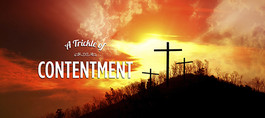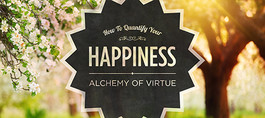How To Quantify Your Happiness
How To Quantify Your Happiness: In the Churchyard of Cambridge
Speaker
Dwight K. NelsonSince 1983, Dwight Nelson has served as lead pastor of the Pioneer Memorial Church on the campus of Andrews University. He preaches on the “New Perceptions” telecast, teaches at the theological seminary and has written some books, including The Chosen. He and his wife, Karen, are blessed with two married children and 2 granddaughters.
Offering
More In This Series
“How to Quantify Your Happiness: ‘The Churchyard in Cambridge’”
-
□ Susan Reimer on the latest Journal of Consumer Research study
-
“‘While people tend to define happiness in terms of excitement,
enthusiasm and high stakes arousal, people define happiness in terms of calm, peacefulness and low states of arousal,’ the authors wrote. We still love thrills as we age, the researchers found. experiences give young and old almost the same amount of pleasure. But happiness from experiences as people got older.” (South Bend Tribune 3-2-14)
- Ninety-three year old essayist Roger Angell on aging: “‘We’ve outgrown our ambitions. If our wives or husbands are still with us, we sense a trickle of contentment flowing from the reliable springs of routine, affection in long silences, calm within the light boredom of well-worn friends, retold stories and mossy opinions.’” (Ibid)
-
“‘While people tend to define happiness in terms of excitement,
-
□ Jesus in Acts 20:35
- “It is more blessed to give than to receive.”
-
Henry Wadsworth Longfellow, “In the Churchyard at Cambridge”:
“Dust is in her beautiful eyes”—a graphic depiction of the unassailable truth that you can’t it with you.
Thus the poet can describe “Christian charity”—the charity of —as “the richest and rarest” of .
- The way Jesus Himself lived: “He went about doing ” (Acts 10:38).
-
□ Tim Aka in End Game Economics: Understanding the Financial Crisis through Scripture
- “It has become painfully obvious the world is suffering under a tremendous burden of debt. From Portugal, Ireland, Greece, and Spain in the European Union, to Japan, China, and of course the United States, nations have become saddled with unstainable amounts of debt.” (8)
- “Individuals have also taken on great amounts of debt to try to attain and maintain a lifestyle. . . . Of course there are those who are truly impoverished without the necessities of life, but the majority of us have all we need for a comfortable life. Yet we don’t realize the extent to which has played a role in the creation of this lifestyle.” (8-9)
- USDTA: “Credit card debt in the USA currently amounts to a total debt of about billion dollars. The average credit card debt per credit card owning household is dollars. This is the total credit card debt divided by the number of households with credit cards. Credit card penalty fees in the US add up to about billion dollars a year.
- “Approximately million credit cards are currently in use in the United States, with credit card users having an average of cards each. There are about 176.8 million credit card users in the US. Every year, about billion credit card solicitations are mailed in the USA.
- “Students are particularly likely to have credit card debts and they are also likely to have multiple credit cards. The average credit card debt of a new graduate is dollars, with about 20 percent of graduates having credit card debts of more than dollars.” (http://www.usdta.org/credit-card-debt-in-the-usa.php)
- Romans 13:8 NLT—“Pay all your , except the debt of love for others.”
□ God in Malachi 3:10
- “The 90 Day Tithe Challenge”
- “The 90 Day 2nd Tithe Challenge”
- “The first tithe was strictly for the support of the priests and Levites [Numbers 18:21; Deuteronomy 14:22]. The second tithe [Deuteronomy 14:23, 28-29] provided either for a sacred family feast before the Lord or for a table provided by Jehovah for orphans, for the poor, and for ‘strangers’ within the land. Levites were eligible to partake of all such feasts. The provisions among Israel for the needy encouraged the practice of true religion. The apostle James expressed the same principle for the Christian church (James 1:27).” (SDA BC 1:1003)
- Desire of Ages: “Having undertaken our redemption, [God] will spare nothing, however dear, which is necessary to the completion of His work. No truth essential to our salvation is withheld, no miracle of mercy is neglected, no divine agency is left unemployed. Favor is heaped upon favor, gift upon gift. The treasury of heaven is open to those He seeks to save. Having collected the riches of the universe, and laid open the resources of infinite power, He gives them into the hands of Christ, and says, All these are for man. Use these gifts to convince him that there is no love greater than Mine in earth or heaven. His greatest happiness will be found in loving Me.” (57)
“Test Me . . . Again”


